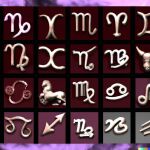10 Expert Morning Habits Backed by Harvard Studies
10 Expert Morning Habits to Boost Your Emotional Well-Being. Harvard studies suggest that a regular routine provides the brain with a sense of security and focus....
Table of Contents
- Your Brain Loves Predictability (and So Does Your Focus)
- 10 Morning Micro-Rituals That Actually Work (Adjust Them to Your Life)
- How to Build Your Routine Without Getting Bored or Giving Up
- What I See in Practice
Follow Patricia Alegsa on Pinterest!
Your Brain Loves Predictability (and So Does Your Focus)
Starting the day with mental order isn’t boring; it’s premium fuel for your attention. Harvard research suggests that a structured morning gives the brain a sense of “security”: you reduce micro-decisions, lower stress, and maintain focus for longer hours.
I see it in my practice daily: when a person knows the order in which they will do their first three things, the mind stops fighting chaos and switches to execution mode. Less drama, more clarity.
Fun fact: cortisol naturally rises at dawn; it’s the impulse that “turns you on.” If you dive straight into your phone, you overload that system with extra stimuli and make it anxious.
Fun fact: cortisol naturally rises at dawn; it’s the impulse that “turns you on.” If you dive straight into your phone, you overload that system with extra stimuli and make it anxious.
Instead, if you repeat a simple sequence — water, light, body — the nervous system gets the right message: no threats here, just routine. And concentration thanks you.
A real example: “Lucía” (name changed), a lawyer, lived in emergency mode from the moment she opened her eyes. We changed her start to three anchors: open curtains, breathe for 1 minute, choose a simple goal for the day. In two weeks, her morning anxiety decreased and she was able to study for an exam without getting distracted.
A real example: “Lucía” (name changed), a lawyer, lived in emergency mode from the moment she opened her eyes. We changed her start to three anchors: open curtains, breathe for 1 minute, choose a simple goal for the day. In two weeks, her morning anxiety decreased and she was able to study for an exam without getting distracted.
No magic: neuroeconomics of mental energy.
The key is not to copy, but to personalize. Start with two or three, measure how you feel, and adjust. Harvard and other reputable sources agree: small changes at the start of the day impact mood and stress response.
- Natural light (15–45 min). Open curtains or go for a walk. Light sets your internal clock and improves mood.
- Delay screens 30 min. Your brain first; the world later. It feels liberating.
- Breakfast with the happy triad: protein + carbohydrate + healthy fat. Stabilizes energy and mood. Example: Greek yogurt with oats and nuts.
- 60-second body scan. Ask yourself: tired, hungry, tense, in pain? Respond before it sabotages you.
- Brief movement. Stretch, walk 10 minutes, or dance to a song. Endorphins rise, your focus rises.
- Intention of the day. A compass phrase: “Today I listen more and rush less.” It’s not pressure, it’s direction.
- One minute of mindfulness. Breathe deeply, chew mindfully, or listen to sounds. Your nervous system slows down.
- Mid-morning snack. Fruit + nuts, or cheese with vegetables. Avoids energy dips and maintains concentration.
- Music that activates you. A cheerful playlist upon waking lifts mental tone. Bonus: a mini dance.
- Regularity. Repeat the order most days. Predictability gives your brain security and sustains your focus.
House special (optional but useful):
- Hydrate upon waking (a large glass). After the night, the brain performs better with water.
- Write three lines (gratitudes, daily goal, a loose worry). Clears noise and gains clarity.
- Wait 60–90 min for coffee if you usually have a mid-morning slump. For many people, it smooths out energy highs and lows.
Be a strategist, not a hero. Habits work by anchoring, not brute force.
- Stack habits. Attach the new to something you already do: “After washing my face, I open the curtains and breathe 6 times.”
- The 2-minute rule. Start ridiculously short. One minute of planning, a brief stretch. The important thing is to turn on the system.
- Prepare at night. Lay out clothes, prepare breakfast, define intention. Fewer decisions at 7 am, more peace.
- Visible checklist. Three boxes on a note: Light / Movement / Breakfast. Checking off motivates. Pilots and doctors use lists for a reason.
- 80/20 flexibility. If one day you slip up, get back on track the next day. Firm routine, flexible mind. Don’t scold yourself; readjust.
In a motivational talk where we worked with over 200 people, I asked them to choose just one “morning anchor.” After a week, 72% reported less distraction and better mood just by repeating that anchor. The muscle of consistency is trained this way: small, daily, kind.
- Sofía, a doctor, lowered her stress when she put light and movement first, and WhatsApp later. She performed the same but got less tired.
- Diego, a programmer, replaced “infinite scrolling” with 8 minutes of walking and a complete breakfast. His concentration stretched until noon.
- Parents with marathon mornings: two shared micro-rituals with kids (music + light) organize the whole house. Yes, we sing together. Yes, it works.
From my astrologer side, a playful note: fire signs usually need action to start; water signs need silence and softness; air signs quick ideas (write three lines); earth signs concrete steps and checklists. It’s not dogma; it’s a clue so your routine fits you like a glove. 😉
Want to try it this week? The challenge I propose to my patients:
- Choose 3 micro-rituals.
- Order them and repeat for 5 days.
- Observe: energy, mood, focus. Adjust one.
Morning doesn’t have to be perfect; it has to be predictable. When the mind feels solid ground upon waking, it focuses better, makes fewer mistakes, and faces the day with a different attitude. Start small today. Your 3 p.m. self will applaud you. 🌞💪
10 Morning Micro-Rituals That Actually Work (Adjust Them to Your Life)
The key is not to copy, but to personalize. Start with two or three, measure how you feel, and adjust. Harvard and other reputable sources agree: small changes at the start of the day impact mood and stress response.
- Natural light (15–45 min). Open curtains or go for a walk. Light sets your internal clock and improves mood.
- Delay screens 30 min. Your brain first; the world later. It feels liberating.
- Breakfast with the happy triad: protein + carbohydrate + healthy fat. Stabilizes energy and mood. Example: Greek yogurt with oats and nuts.
- 60-second body scan. Ask yourself: tired, hungry, tense, in pain? Respond before it sabotages you.
- Brief movement. Stretch, walk 10 minutes, or dance to a song. Endorphins rise, your focus rises.
- Intention of the day. A compass phrase: “Today I listen more and rush less.” It’s not pressure, it’s direction.
- One minute of mindfulness. Breathe deeply, chew mindfully, or listen to sounds. Your nervous system slows down.
- Mid-morning snack. Fruit + nuts, or cheese with vegetables. Avoids energy dips and maintains concentration.
- Music that activates you. A cheerful playlist upon waking lifts mental tone. Bonus: a mini dance.
- Regularity. Repeat the order most days. Predictability gives your brain security and sustains your focus.
House special (optional but useful):
- Hydrate upon waking (a large glass). After the night, the brain performs better with water.
- Write three lines (gratitudes, daily goal, a loose worry). Clears noise and gains clarity.
- Wait 60–90 min for coffee if you usually have a mid-morning slump. For many people, it smooths out energy highs and lows.
How to Build Your Routine Without Getting Bored or Giving Up
Be a strategist, not a hero. Habits work by anchoring, not brute force.
- Stack habits. Attach the new to something you already do: “After washing my face, I open the curtains and breathe 6 times.”
- The 2-minute rule. Start ridiculously short. One minute of planning, a brief stretch. The important thing is to turn on the system.
- Prepare at night. Lay out clothes, prepare breakfast, define intention. Fewer decisions at 7 am, more peace.
- Visible checklist. Three boxes on a note: Light / Movement / Breakfast. Checking off motivates. Pilots and doctors use lists for a reason.
- 80/20 flexibility. If one day you slip up, get back on track the next day. Firm routine, flexible mind. Don’t scold yourself; readjust.
In a motivational talk where we worked with over 200 people, I asked them to choose just one “morning anchor.” After a week, 72% reported less distraction and better mood just by repeating that anchor. The muscle of consistency is trained this way: small, daily, kind.
What I See in Practice
- Sofía, a doctor, lowered her stress when she put light and movement first, and WhatsApp later. She performed the same but got less tired.
- Diego, a programmer, replaced “infinite scrolling” with 8 minutes of walking and a complete breakfast. His concentration stretched until noon.
- Parents with marathon mornings: two shared micro-rituals with kids (music + light) organize the whole house. Yes, we sing together. Yes, it works.
From my astrologer side, a playful note: fire signs usually need action to start; water signs need silence and softness; air signs quick ideas (write three lines); earth signs concrete steps and checklists. It’s not dogma; it’s a clue so your routine fits you like a glove. 😉
Want to try it this week? The challenge I propose to my patients:
- Choose 3 micro-rituals.
- Order them and repeat for 5 days.
- Observe: energy, mood, focus. Adjust one.
Morning doesn’t have to be perfect; it has to be predictable. When the mind feels solid ground upon waking, it focuses better, makes fewer mistakes, and faces the day with a different attitude. Start small today. Your 3 p.m. self will applaud you. 🌞💪
Subscribe to the free weekly horoscope
Aquarius Aries Cancer Capricorn Gemini Leo Libra Pisces Sagittarius Scorpio Taurus Virgo
-
 Two moments in life are crucial for aging: 40 years and 60 years
Two moments in life are crucial for aging: 40 years and 60 years
Discover how aging affects your metabolism and physical and mental health. Research with Stanford on crucial changes and the importance of diet and lifestyle. -
 The detox approach that celebrities use for a long life
The detox approach that celebrities use for a long life
Discover how to live longer and better with Alejandro Junger, the doctor of the stars. His detox approach combines nutrition, supplements, and healthy habits. -
 The avocado seed: how to eat it and health benefits
The avocado seed: how to eat it and health benefits
Discover the little-known health benefits of avocado seeds and how to make the most of them. -
 A climatic factor that accelerates aging: find out what it is
A climatic factor that accelerates aging: find out what it is
Warning! Extreme heat waves accelerate aging in the elderly, study warns. The weather punishes our cells more than we think. -
 5 Foolproof Techniques to Recognize Quality Olive Oil
5 Foolproof Techniques to Recognize Quality Olive Oil
Discover 5 foolproof techniques to identify high-quality olive oil and learn about the characteristics that make it superior. Improve your choice!
I am Patricia Alegsa
I have been writing horoscope and self-help articles professionally for over 20 years.
Subscribe to the free weekly horoscope
Receive weekly in your email the horoscope and our new articles on love, family, work, dreams and more news. We do NOT send spam.
Astral and numerological analysis
-
 Discover your future, secret personality traits and how to improve in love, business and life in general
Discover your future, secret personality traits and how to improve in love, business and life in general
-
 Online Dream Interpreter: with artificial intelligence
Do you want to know what a dream you had means? Discover the power of understanding your dreams with our advanced online dream interpreter using artificial intelligence that responds to you in seconds.
Online Dream Interpreter: with artificial intelligence
Do you want to know what a dream you had means? Discover the power of understanding your dreams with our advanced online dream interpreter using artificial intelligence that responds to you in seconds.
-
 The Explorer's Routine: a simple exercise to combat cognitive decline
The Explorer's Routine: a simple exercise to combat cognitive decline
Discover the 'explorer's routine': a non-technology exercise that combats cognitive decline and improves your health. Easy to practice and highly beneficial. -
 Do you feel exhausted all day? Discover its causes and how to combat it
Do you feel exhausted all day? Discover its causes and how to combat it
Do you constantly feel exhausted? Learn what asthenia or extreme fatigue syndrome is, its symptoms, causes, and the best strategies to regain your energy. Take care of your health and live fully! -
 The Best Ways to Eat Eggs to Boost Their Proteins
The Best Ways to Eat Eggs to Boost Their Proteins
Discover the best way to enjoy eggs and maximize the absorption of their proteins. This nutritious and versatile food is perfect in any recipe. -
 Alarm: Cancer in Young Adults and Women Dramatically Increases
Alarm: Cancer in Young Adults and Women Dramatically Increases
Attention! Cancer is no longer just an issue for older people: it is growing among young people and women. Incredible but true! The reality is changing. -
 Benefits of poppy seeds: how many should you consume per day?
Benefits of poppy seeds: how many should you consume per day?
Poppy seeds can be consumed because they are a great source of nutrients, fiber, and have powerful antioxidant properties. -
 Boost Your Mind! 13 Scientific Tricks to Improve Your Focus
Boost Your Mind! 13 Scientific Tricks to Improve Your Focus
Discover 13 scientific ways to boost your mind! Better concentration and agility: sleep well, stay hydrated, and create a noise-free space. -
 Sex addiction: how much is too much? When to seek help?
Sex addiction: how much is too much? When to seek help?
Sex addiction: discover how to manage the compulsive behavior that impacts your relationships and work life. Learn when to seek professional help. -
 Writing an intimate diary helps to grow internally
Writing an intimate diary helps to grow internally
Discover how an intimate diary enhances children's emotional development, helping children effectively express their fears and dreams. -
 What does it mean to dream about fish?
What does it mean to dream about fish?
Discover the fascinating world of dream interpretation with fish. What do these aquatic animals mean in your dreams? Read our article and find out! -
 Hidden secrets according to your zodiac sign
Hidden secrets according to your zodiac sign
Discover the hidden secrets of each woman according to her zodiac sign in this article. -
 Find out which zodiac sign is the most relaxed and the most possessive in love
Find out which zodiac sign is the most relaxed and the most possessive in love
Discover the zodiac signs from most to least possessive, know your astrology and find your balance! -
 Robert Irwin is already 21 years old and shows us how he has grown!
Robert Irwin is already 21 years old and shows us how he has grown!
At 21 years old, Robert Irwin surprises the world by posing sexy for a underwear campaign. With his natural charm and passion for animals, this young Australian is stealing hearts! -
 Why is it harder to recover after the age of 40?
Why is it harder to recover after the age of 40?
Discover why it's harder to recover at 40: the body ages, and a bad night or flu affects it more. Science explains it!